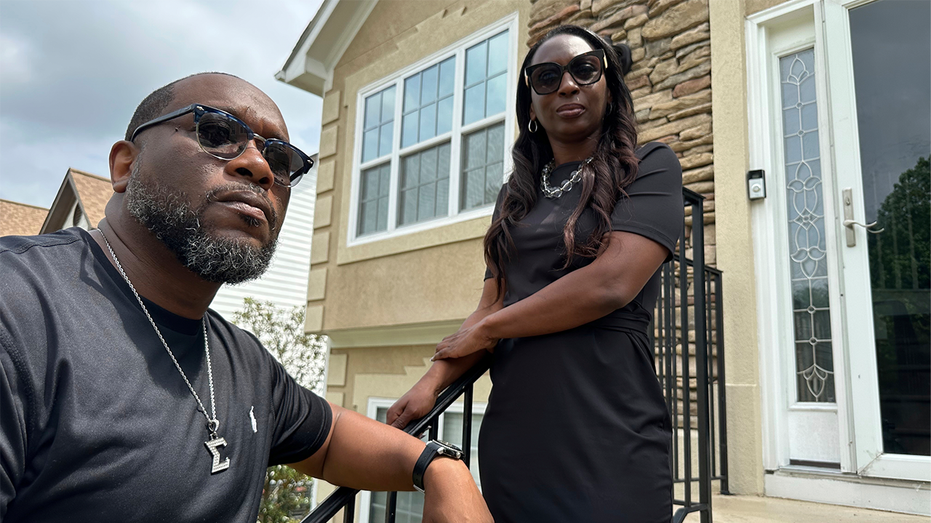The Supreme Court is preparing to hear a significant case stemming from a notable event in Atlanta, Georgia, where the FBI mistakenly raided the home of a woman. This incident has led to profound consequences for the woman and has raised critical questions about the limits of government authority and the rights of citizens under the Fourth Amendment. As arguments are set to unfold, the case has garnered widespread attention, highlighting the repercussions of law enforcement errors and the need for accountability.
The situation began when the FBI executed a search warrant at an address in Atlanta, erroneously believing it to be linked to a criminal investigation. Unbeknownst to the authorities, the house they targeted belonged to an innocent woman who had no connection to any wrongdoing. The botched raid resulted in significant emotional and physical turmoil for the homeowner, effectively turning her life upside down.
Details surrounding the raid reveal that federal agents stormed the woman’s residence early one morning, with guns drawn, creating a scene of chaos and confusion. For the woman, the experience was not only terrifying but also traumatizing, leaving her with lingering fears and effects on her daily life. She reported that the moment the door was broken down, and agents burst in, she felt an overwhelming sense of violation and helplessness.
In the aftermath, the woman expressed the harrowing impact of the raid on her mental well-being and her overall sense of security at home. “I’ll never be the same,” she remarked candidly. It’s a sentiment shared by many across the country, as citizens often find comfort in the belief that their homes are safe havens that will remain unmarred by the heavy hand of government overreach.
The Supreme Court’s decision to engage with this case stems from significant constitutional questions regarding the Fourth Amendment, which protects individuals against unreasonable searches and seizures by the government. Legal experts note that while law enforcement agencies have the authority to execute search warrants, they are also bound by laws that ensure adherence to protocols meant to safeguard innocent civilians from such erroneous actions.
As the case progresses through the judicial system, the woman has advocated for greater accountability and transparency in FBI operations. She believes that innocent citizens should not have to endure the consequences of a mistake made by law enforcement. Her advocacy has sparked discussions nationwide about the protocols and training that agents undergo when executing search warrants and the necessity for reform.
The importance of the Supreme Court’s involvement cannot be overstated, as its ruling could set a precedent impacting similar future cases. Legal analysts argue that the court has a duty to clarify the boundaries of law enforcement’s power, especially when it comes to the rights and protections afforded to persons under the Constitution. A ruling in favor of greater protections could lead to substantial changes in how agencies like the FBI operate, particularly in how they assess risks and execute search warrants.
Supporters of the woman are rallying around her case, emphasizing that it is not merely a story of one unfortunate individual, but a cause representing broader issues of civil liberties and government accountability. Advocates are highlighting the necessity for reforms that ensure such mistakes do not happen in the future, suggesting that an overhaul of training procedures and policies may be necessary for law enforcement at all levels.
During the hearings, justices will listen to arguments from both the woman’s attorneys and the representatives of the FBI. The forthcoming discussions are expected to delve into the legal standards that should apply when evaluating the constitutionality of law enforcement actions in light of mistakes that lead to violations of citizens’ rights.
The ramifications of the case are likely to be wide-reaching, with the potential to affect not only the Atlanta woman but many others who may find themselves in similar situations. If the Court sides with the woman, it could empower citizens to hold law enforcement accountable for errors that infringe upon their rights. Conversely, a ruling in favor of the FBI could reaffirm existing practices and limit the means by which individuals can contest government actions.
For many, the implications of this case extend beyond the courtroom. It brings to light the importance of community relations with law enforcement agencies. Trust between citizens and police is fundamental for public safety; however, incidents such as this serve to erode that trust, creating a ripple effect in community confidence in law enforcement agencies.
As communities and individuals observe the proceedings and contemplate the potential outcomes, there are calls for renewed conversations about the necessary balance between security and civil rights. Many community leaders argue that while it is essential to uphold law enforcement’s ability to function effectively, it should not come at the expense of the rights and dignities of innocent individuals.
In conclusion, as the Supreme Court prepares to hear arguments related to the FBI’s mistaken raid on the Atlanta woman’s home, it brings forth a critical analysis of accountability, civil rights, and governmental power. The decisions made during these hearings will shape the future of how law enforcement operates and how the rights of innocent citizens are protected. As the nation watches closely, the outcome will undoubtedly echo in courtrooms and communities alike, serving as a reminder of the delicate balance between authority and individual rights.
The journey for the woman affected by this incident continues, as she seeks not only personal restitution but also systemic changes that could prevent such tragedies from occurring in the future. Her case stands as a testament to the resilience of individuals confronting injustice and the ongoing struggle for civil rights in America.
































